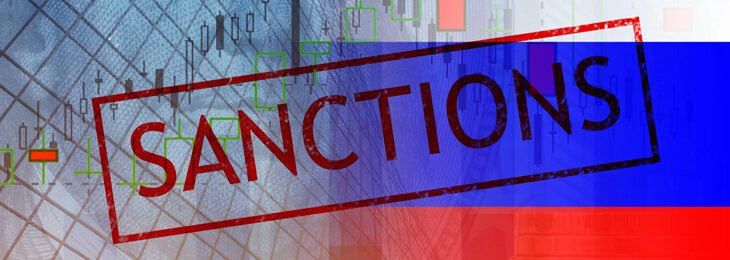
The anti-money laundering (AML), counter-terrorist financing (CTF) and anti-financial crimes industry is booming. The evolving regulatory landscape, technological advances and new schemes create an environment where experienced industry compliance professionals are in demand. In this case, the demand is creating its own supply. New professionals enter the job market daily. So, how do you, as a seasoned AML compliance professional, best position yourself to not only remain employable today, but to advance in the industry tomorrow? The answer is marketability.
“Marketability…refers to how desirable a candidate is for employment consideration…Corporate employers…prefer to hire academically prepared, highly motivated and ambitious workers who offer them a good, long-term return on their investment. Marketability also denotes the flexibility a candidate enjoys in selecting suitable employment opportunities. That is to say, a highly marketable job seeker…can follow a number of different pathways to career success.”1 To become marketable, demonstrate subject-matter knowledge and ambition. To remain marketable, share subject-matter knowledge and encourage ambition.
Learning the Basics
It may seem intuitive, but one way to improve marketability is to expand subject-matter knowledge and skillsets. AML and anti-financial crimes compliance is a vast industry comprised of lawmakers, regulatory enforcement officials, law enforcement, compliance professionals, technology experts, attorneys and more; therefore, understanding all the moving pieces can be a daunting proposition. Start with the basics—for U.S.-based professionals, read and understand the requirements outlined in the Bank Secrecy Act2 (BSA) (for non-U.S. based professionals, substitute local regulations). Investing valuable time in understanding regulatory requirements is one way to differentiate oneself in the industry.
Remember to seek out and leverage other relevant and trustworthy resources during the education process, such as supplemental industry websites (e.g., FinCEN, OFAC, etc.). While you are reading the requirements, create some useful and proprietary tools for yourself, such as 1) a requirements matrix, which can be readily converted to a control assessment, and 2) a resource guide, which can be leveraged as you progress in your career (more on this later).
Once the regulatory requirements have been mastered, U.S.-based professionals should move on to the Federal Financial Institutions Council BSA/AML Examination Manual3 to understand compliance expectations. Also, to help master the implementation and maintenance of a quality risk-based anti-financial crimes compliance program, read and understand the risk management integrated framework principles (aka Three Lines of Defense) put forth by the Committee of Sponsoring Organizations of the Treadway Commission.4
Remember the regulatory matrix you created when reading the BSA? Well, now you should be well prepared to add controls your institution has implemented—resulting in a very handy controls assessment document.
Seek out a Mentor
Developing formal or informal mentoring relationships can reap multiple benefits:
Internal networking—Being seen with a more senior professional inside of your organization increases your profile among other senior managers.
External networking—“A well-connected mentor likely has inroads into influential professional organizations…perhaps a mentor can sponsor your membership in one or more of the prestigious organizations. The contacts that you make through such associations can prove helpful throughout your career development. Plus, listing these associations on your resume will enhance your written credentials and give you a bit of a competitive edge in job hunting.”5
Proactively request not only of your mentor(s), but also of your manager to be a silent participant on relevant teleconferences and ask that appropriate referential material and/or emails be forwarded to you. This will provide exposure to 1) identify who is who in the corporate structure, 2) study appropriate interactions with varying levels within the organization and 3) learn new information, jargon, risks or processes.
Become the "Go-To" Person
The “go-to” person has many attributes—he/she always delivers a quality product on time and makes himself/herself available for extra assignments/work. Thus, when management asks for volunteers for an assignment and you feel qualified to tackle, be the first to raise your hand. When management approaches you with an assignment, enthusiastically accept it. Do not publicly complain to management or to peers about the added workload. Lead by example and take examples from your leaders. Leaders do not complain (publicly) about anything and neither should you. You want to be the person setting the bar for others, so act accordingly.
Proactively offer to provide written or oral summaries of white papers, interesting industry articles or enforcement actions. You may want to intentionally focus on areas outside of your current job responsibilities in order to grow knowledge and to demonstrate “fungibility” to management.
Keep in mind that you are your brand and your brand is you
As you consider how to best represent yourself in front of management and peers, keep in mind that you are your brand and your brand is you. So, take very good care of both. Cleanse your online presence. Invest in a public speaking course or join Toastmasters International. Dress for success. Dress for the role you want and not the job you have.6 You are in the process of building your brand and appearance does matter. By dressing for the job you want, you take the external and internalize it. Posture is straighter when dressed in a suit rather than casual attire. A professional attire will encourage professional interactions. Other people will more readily see in you the same potential for job growth that you see in yourself when you dress the part.
Taking Knowledge to the Next Level
Building subject-matter expertise is a process7 that takes time and dedication. “Three elements are required to establish oneself as a subject-matter expert: education, experience and marketing. Having the right credentials fulfills the education component,”8 says Jesse Torres, community banker and small business expert. Many undergraduate schools offer studies in fields directly related to financial crimes prevention and analysis such as homeland security, criminal justice or forensic accounting. An undergraduate degree is not the only path into the industry. An advanced degree in law is appealing to many compliance-hiring managers. Perhaps more appealing than a law degree or law enforcement experience to AML compliance-hiring managers is having one or more industry certifications.
The value of an industry certification cannot be overstated. The compliance industry offers multiple certifications that may be useful in building subject-matter expertise such as a Certified Fraud Expert (CFE) designation and a Certified Regulatory Compliance Manager (CRCM) designation, but it is safe to say that the gold standard in anti-money laundering compliance remains the Certified Anti-Money Laundering Specialist (CAMS) designation offered by ACAMS. ACAMS now offers advanced certifications for those individuals who want to demonstrate commitment to a particular subject matter like audit or financial crimes investigations.
Find Your Passion
In building subject-matter expertise, it helps to find a passion and then study it and live it. Take your passion and strive to make a difference in your organization and/or in the industry. Within your organization, develop process efficiencies to eliminate waste, identify and/or control for gaps in the AML compliance program, offer education and training opportunities.
In the industry, share knowledge or develop new programs. ACAMS’ 2016 Professional of the Year award winner Lauren Kohr says, “This is what I am most passionate about: breaking down the traditional silos that have previously divided government, law enforcement, and the financial industry and replace it with relationships working collectively to accomplish our shared visions of combating financial crime. Such partnerships will promote the sharing of industry knowledge and best practices, as well as cross-industry dialogue aimed at preventing further growth of crimes aided through illicit financial transactions.” Kohr turned that passion not only into the 2016 Professional of the Year Award, but also the 2016 ACAMS Today Article of the Year Award by sharing her knowledge in an article titled “The Power of Peer Groups for Community Banks.”
Encourage Knowledge Sharing
Not only should you share your knowledge with peers and management, but you should also encourage others to share knowledge. Compliance programs become stronger when appropriate information is shared. In addition, remember, training is one of the five AML program pillars.
In her ACAMS Today article titled “Train Like a Champion,”9 Yashica Whitehead states “Knowledge is free. Employees can share what they know with other AML professionals within the institution. Providing a knowledge-based forum for employees encourages an open exchange of questions and ideas among AML professionals that enhances overall regulatory and best practice knowledge. It also promotes continued knowledge sharing outside of the training environment by providing networking opportunities.” You can be the catalyst to develop the knowledge sharing forum in your organization. Seek out management support and you are on your way to increasing your profile and helping your organization. It is a win-win situation.
From a marketability standpoint, there is real value in sharing your own knowledge with others—your visibility within the organization and industry is automatically magnified. You will cement your role as a subject-matter expert by being the go-to person for answers to BSA/AML-related questions. What is the best way to share your knowledge? The opportunities are endless:
Proactively seek new responsibilities
Internal to your organization:
- Create helpful tools and resources. When learning about a topic, bookmark links to share with managers and peers. Document the regulatory requirements in a requirements matrix and keep the matrix updated. Create a resource containing regulatory requirements, procedures, helpful bookmarks, samples of communications and calendars for new associates to leverage.
- Put knowledge to use by identifying compliance gaps in the program and offering potential solutions.
- Volunteer to put your skills to use—assist with risk assessments, systems testing, data validation or conduct line of business training.
External to your organization:
- Offer to speak at a local or national conference or teleconference (remember to obtain approval from within your organization, as needed). Expand beyond the AML/financial crimes boundaries. For example, accountant and attorney groups also look for industry professionals to speak at their meetings.
- Write an article or a blog
(remember to obtain approval
from within your organization, as needed). ACAMS Today and ACAMSToday.org welcome the written insights of industry professionals. Contact any Editorial Committee member or the editor-in-chief10 for additional information on article submissions. You have a unique viewpoint and unique experiences—share them. - Volunteer to assist with your local ACAMS chapter. Proactively seek new responsibilities. A simple offer to volunteer may eventually develop into a leadership position within the organization.
- Create or join a peer group. As Kohr states in her award-winning article, “The benefits of a peer group become immeasurable, not only to BSA/AML representatives in the community banking industry, but to law enforcement, regulatory agencies and BSA/AML consultants. Each member—no matter the background or discipline represented—is provided the opportunity to collaborate, share knowledge and experiences, network, and understand the challenges each discipline faces.” The exposure to like-minded professionals tackling compliance challenges is priceless.
- Network—and then network some more. When networking, ensure to hand out business cards. If your organization does not supply you with business cards, pay to have them made. It will be one of the best $10 investments you will ever make! The value of a business card cannot be overstated when networking. Attend ACAMS chapter meetings and trainings. When possible, attend or present at national conferences. Remember to have a “30 second elevator pitch”11 ready!
- Finally, remember to keep your resume and online presence updated with new skills, articles published or presentations delivered. “Given how competitive the job market is, a well-constructed resume is one sure-fire way to rise to the top of the applicant pool,”12 states a recent ACAMS Today article. Richard Phillips, owner of Advantage Career Solutions stresses that professionals should maintain a smart online profile by removing inane or offensive posts and begin to contribute to industry blogs and forums.13
Becoming marketable in today’s job market takes time and patience. Staying marketable takes dedication and passion. Both results are worth the effort expended.
- Calvin Bruce, “How to Make Yourself More Marketable,” Experience, https://www.experience.com/alumnus/article?channel_id=careers&source_page=breaking_in&article_id=article_1139411761637
- “Electronic Code of Federal Regulations,” U.S. Government Publishing Office, January 1, 2017, http://www.ecfr.gov/cgi-bin/text-idx?SID=4ed28aff321d97007276a7736cae032e&c=ecfr&tpl=/ecfrbrowse/Title31/31cfrv3_02.tpl
- “Bank Secrecy Act/Anti-Money Laundering Examination Manual,” FFIEC, 2014, https://www.ffiec.gov/bsa_aml_infobase/documents/bsa_aml_man_2014.pdf
- Committee of Sponsoring Organizations of the Treadway Commission, http://www.coso.org/guidance.htm
- Calvin Bruce, “How to Make Yourself More Marketable,” Experience, https://www.experience.com/alumnus/article?channel_id=careers&source_page=breaking_in&article_id=article_1139411761637
- R. Kay Green, “Dress for the Career You Want, Not the One You Have,” Huffington Post, January 31, 2013, http://www.huffingtonpost.com/r-kay-green/career-future-advice_b_2583884.html
- Matt Cooper, “5 Steps to Becoming More Marketable,” Inc., September 4, 2013, http://www.inc.com/matt-cooper/5-steps-to-becoming-more-marketable.html
- Jesse Torres, “5 Steps to Becoming a Subject Matter Expert,” April 21, 2014, https://www.linkedin.com/pulse/20140421082247-6260457-sell-more-become-a-subject-matter-expert-in-five-steps
- Yashica Whitehead, “Train Like a Champion,” ACAMS Today, March-May 2010, http://www.acamstoday.org/wp-content/uploads/2015/05/AT_v9_n2.pdf
- Found on ACAMSToday.org
- “The 30 Second Elevator Speech,” http://sfp.ucdavis.edu/files/163926.pdf
- Amy Wotapka, “Resume Tips for the AML Professional,” ACAMS Today, December 2016-February 2017, http://www.acamstoday.org/resume-tips-for-the-aml-professional/
- Margaret Steen, “Eight Ways to Make Yourself More Marketable,” Monster, https://www.monster.com/career-advice/article/8-ways-to-make-yourself-more-marketable-hot-jobs










